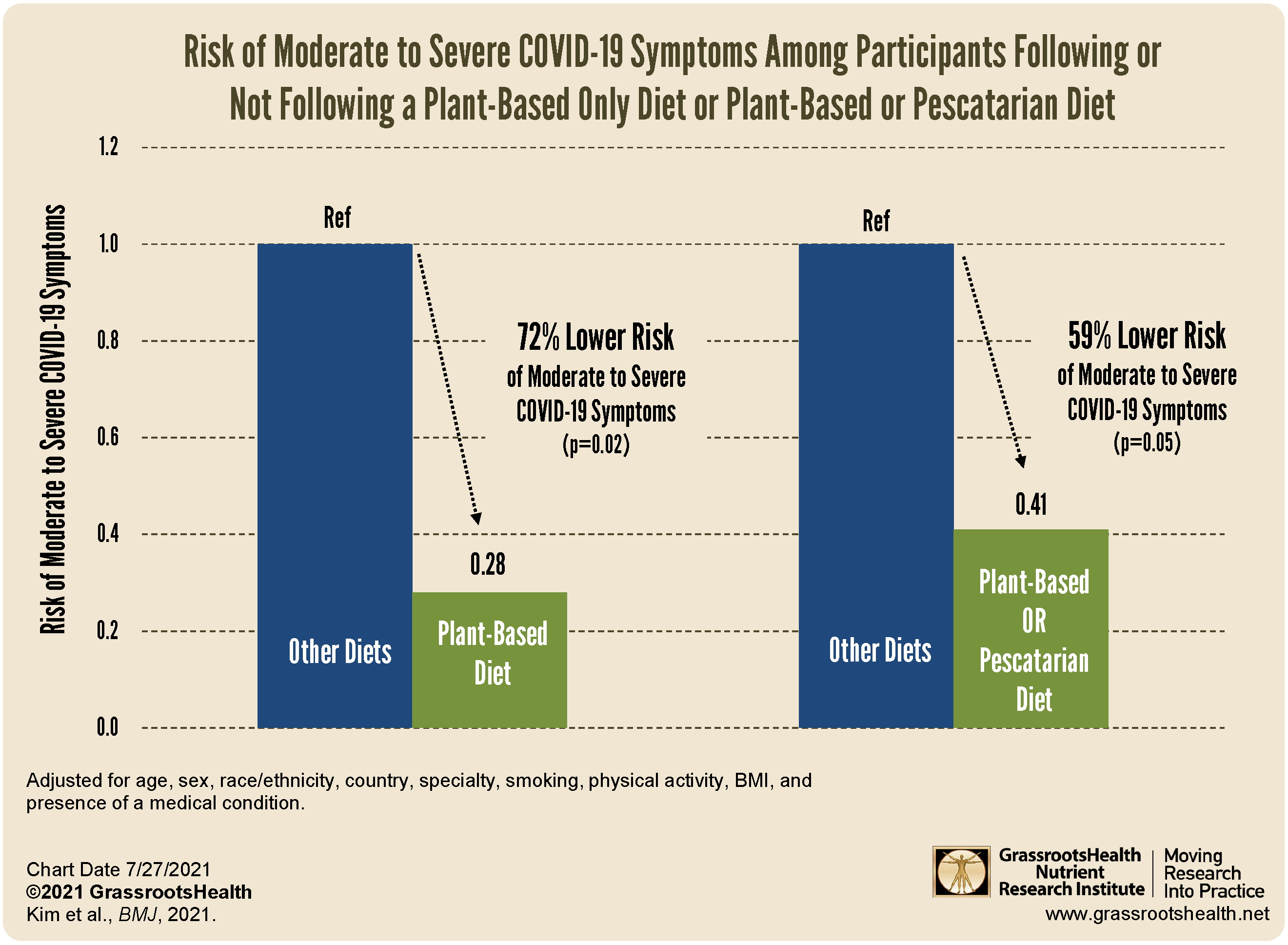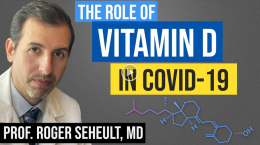Published on July 28, 2021
Study reports on an association between dietary patterns and severity of COVID-19 illness
 Several factors have been associated with the severity of COVID-19 disease, including age, ethnicity, and preexisting conditions. Nutrient deficiencies, especially of vitamin D, have also been shown to affect COVID-19 severity and outcome. It is also known that specific nutrients play important roles in immune health, and that certain diets lack several of these essential nutrients, leading to widespread deficiencies.
Several factors have been associated with the severity of COVID-19 disease, including age, ethnicity, and preexisting conditions. Nutrient deficiencies, especially of vitamin D, have also been shown to affect COVID-19 severity and outcome. It is also known that specific nutrients play important roles in immune health, and that certain diets lack several of these essential nutrients, leading to widespread deficiencies.
Could a Certain Type of Diet Affect COVID-19 Severity?
A study by Kim et al. evaluated the association between self-reported dietary patterns and COVID-19 infection, severity, and duration of symptoms among 2884 health care workers, all of whom had a high frequency of exposure to patients with COVID-19. Participants completed a detailed web-based questionnaire, including information about demographics, medical history, medications, lifestyle, and COVID-19, along with a food frequency questionnaire.
The analysis included 568 cases of COVID-19 and 2316 controls. COVID-19 cases were grouped as either being moderate-to-severe or very mild to mild. Diet types were combined into groups as well, with 254 participants in the plant-based diets group (those who indicated eating a whole food, plant-based diet or who indicated eating a vegetarian diet), 294 participants in the plant-based or pescatarian diet group (those in the plant based diet group plus those indicating a pescatarian diet), and 483 participants in the low carbohydrate, high protein diet group.
Did COVID-19 Disease Severity Vary Based on Diet?
Among the COVID-19 cases, 430 reported very mild to mild symptoms and 138 reported moderate-to-severe symptoms. Those with moderate-to-severe cases were less likely to report following a plant-based diet (8.6% for very mild to mild vs 2.9% for moderate-to-severe; p=0.02) and were more likely to report following a low carbohydrate, high protein diet (14.2% for very mild to mild vs 21.7% for moderate-to-severe; p=0.04).
In other words, those who reported following a plant based diet had a 72% lower risk of moderate-to-severe COVID-19 illness compared to all other diets (p=0.02). Those in the plant based or pescatarian diet group had a 59% lower risk of moderate-to-severe COVID-19 illness (p=0.05). Following a low carbohydrate, high protein diet was associated with a 48% higher risk of moderate-to-severe COVID-19 illness, however, this finding was not statistically significant.
Overall, the researchers found that those eating a low carbohydrate, high protein diet had a greater than 3-fold increased risk of moderate-to-severe COVID-19 illness compared to those eating a plant-based diet (p<0.05).
What was the Difference in the Types of Food Eaten?
The following foods were more likely to be reported for each of the groups compared:
- Plant-based diet – more vegetables, fruit, plant proteins (legumes and nuts); less poultry, red meat, processed meats, sugary beverages and alcohol
- Plant-based diet or Pescatarian diet – more vegetables, fruit, legumes, nuts, fish and seafood; less poultry, red meat, processed meats
- Low carbohydrate, High protein diet – more legumes, nuts, soups, and animal products (eg, eggs, poultry); less refined grains, sweets and desserts, vegetable oil, croquettes, dumplings, and pizza
How Could the Foods You Eat Affect COVID-19 Disease Outcomes?
Plant based diets are often higher in nutrients such as vitamins A, C and E, folate, iron, potassium, and magnesium – all of which have been shown to support a healthy immune system. Fruits, vegetables, nuts and legumes, fish and seafood, and other foods found in diets such as the Mediterranean diet, have also been shown to have anti-inflammatory properties whereas processed meats and red meats may be more pro-inflammatory.
The AA:EPA ratio is a test that one can use to measure the amounts of unhealthy fats to healthy fats in their blood. It is also used as an indicator of inflammation within the body, and can be added to any GrassrootsHealth test kit that includes both vitamin D and the Omega-3 Index. At the time of testing, participants complete a health and lifestyle questionnaire that includes questions about their type of diet and fish intake over the previous 6 months along with specific health outcomes, including whether they experienced any COVID-19 symptoms. Create your custom participant test kit here, and add more insights to how diet and resulting nutrient levels might affect everyone’s health by participating in the GrassrootsHealth projects today!
Measure Your Level of Vitamin D and Other Important Nutrients
 Having and maintaining healthy vitamin D levels and other nutrient levels can help improve your health now and for your future. Choose which to measure, such as your vitamin D, omega-3s, and essential minerals including magnesium and zinc, by creating your custom home test kit today. Take steps to improve the status of each of these measurements to benefit your overall health. You can also track your own intakes, symptoms and results to see what works best for YOU.
Having and maintaining healthy vitamin D levels and other nutrient levels can help improve your health now and for your future. Choose which to measure, such as your vitamin D, omega-3s, and essential minerals including magnesium and zinc, by creating your custom home test kit today. Take steps to improve the status of each of these measurements to benefit your overall health. You can also track your own intakes, symptoms and results to see what works best for YOU.
Enroll and test your levels today, learn what steps to take to improve your status of vitamin D (see below) and other nutrients and blood markers, and take action! By enrolling in the GrassrootsHealth projects, you are not only contributing valuable information to everyone, you are also gaining knowledge about how you could improve your own health through measuring and tracking your nutrient status, and educating yourself on how to improve it.
Help everyone Move Research into Practice with vitamin D and other nutrients! As a special birthday gift to everyone, in honor of the science, we have created a special scholarship fund for anyone to donate to that will go towards helping others participate. Your donation will allow anyone to get help with funding their participation when they need it.
Text-to-give: Text Daction to 44321 to add to our Scholarship Fund.







